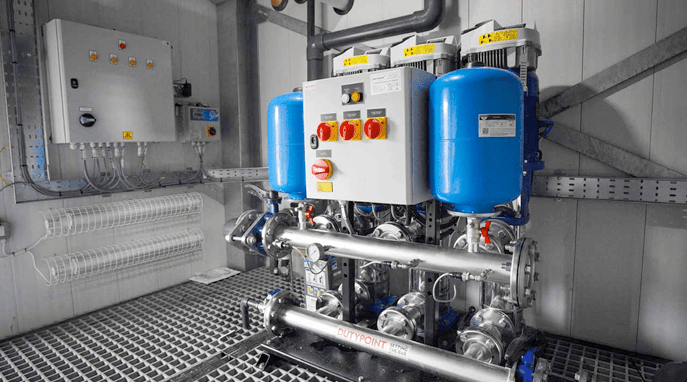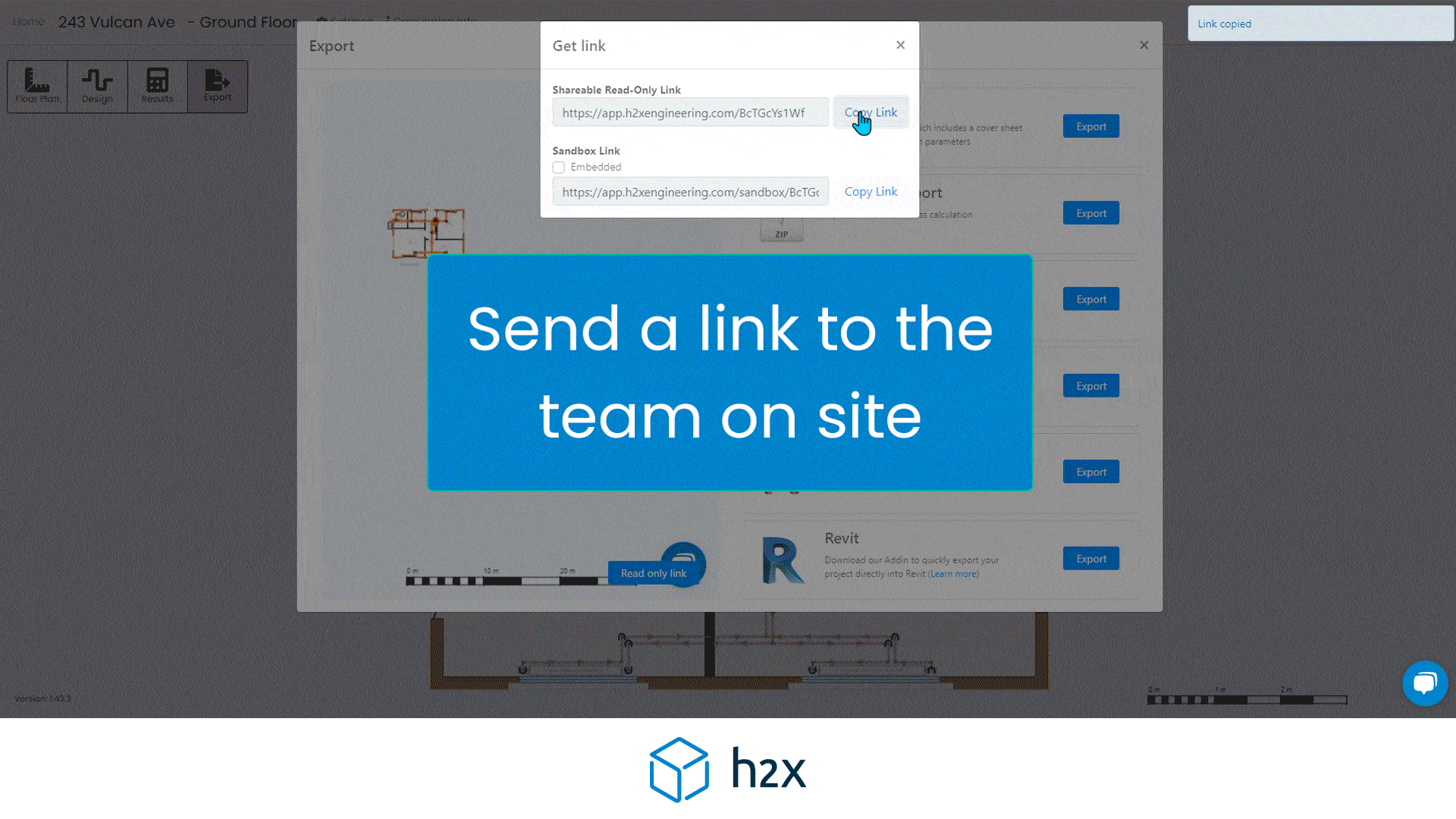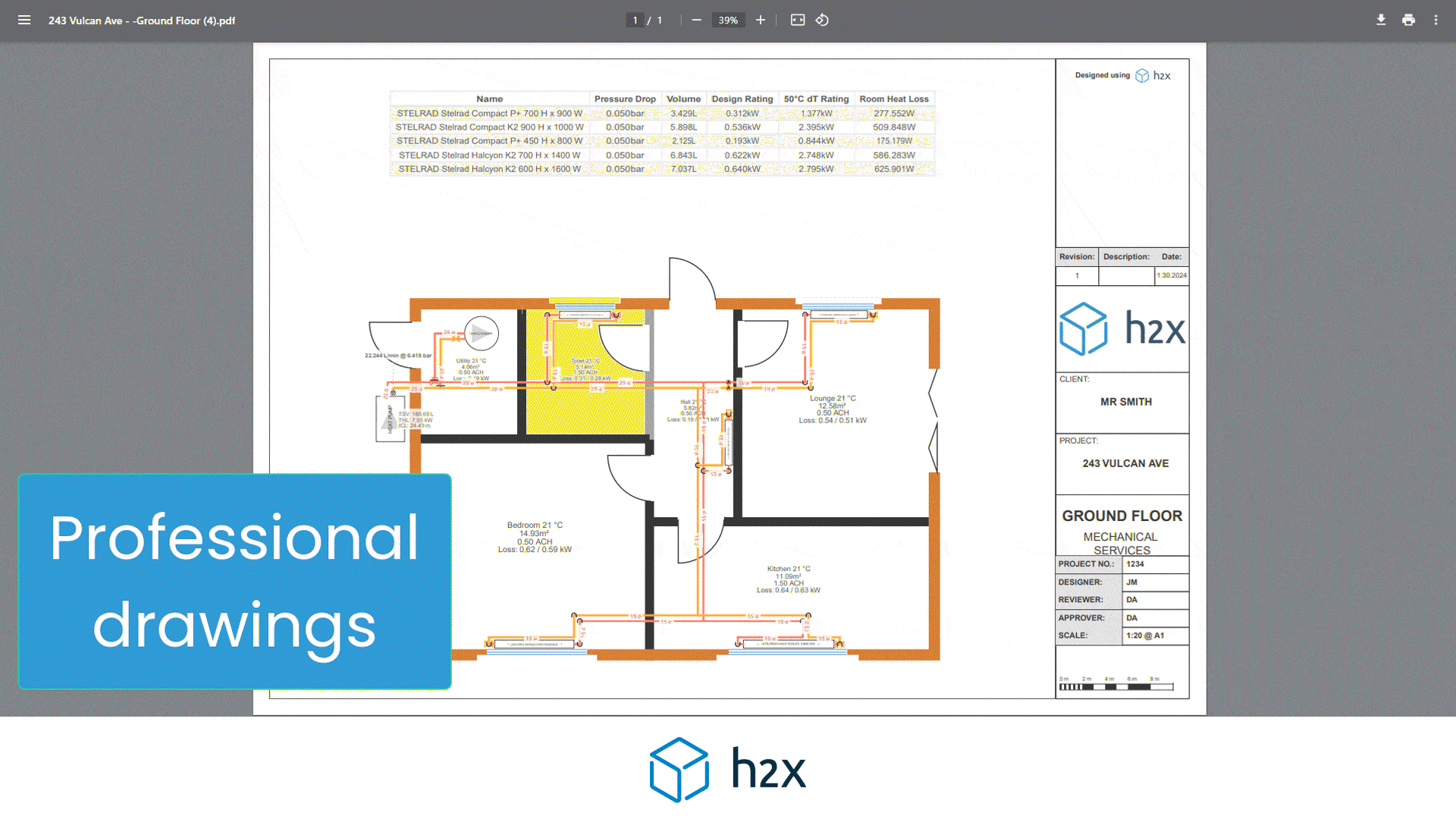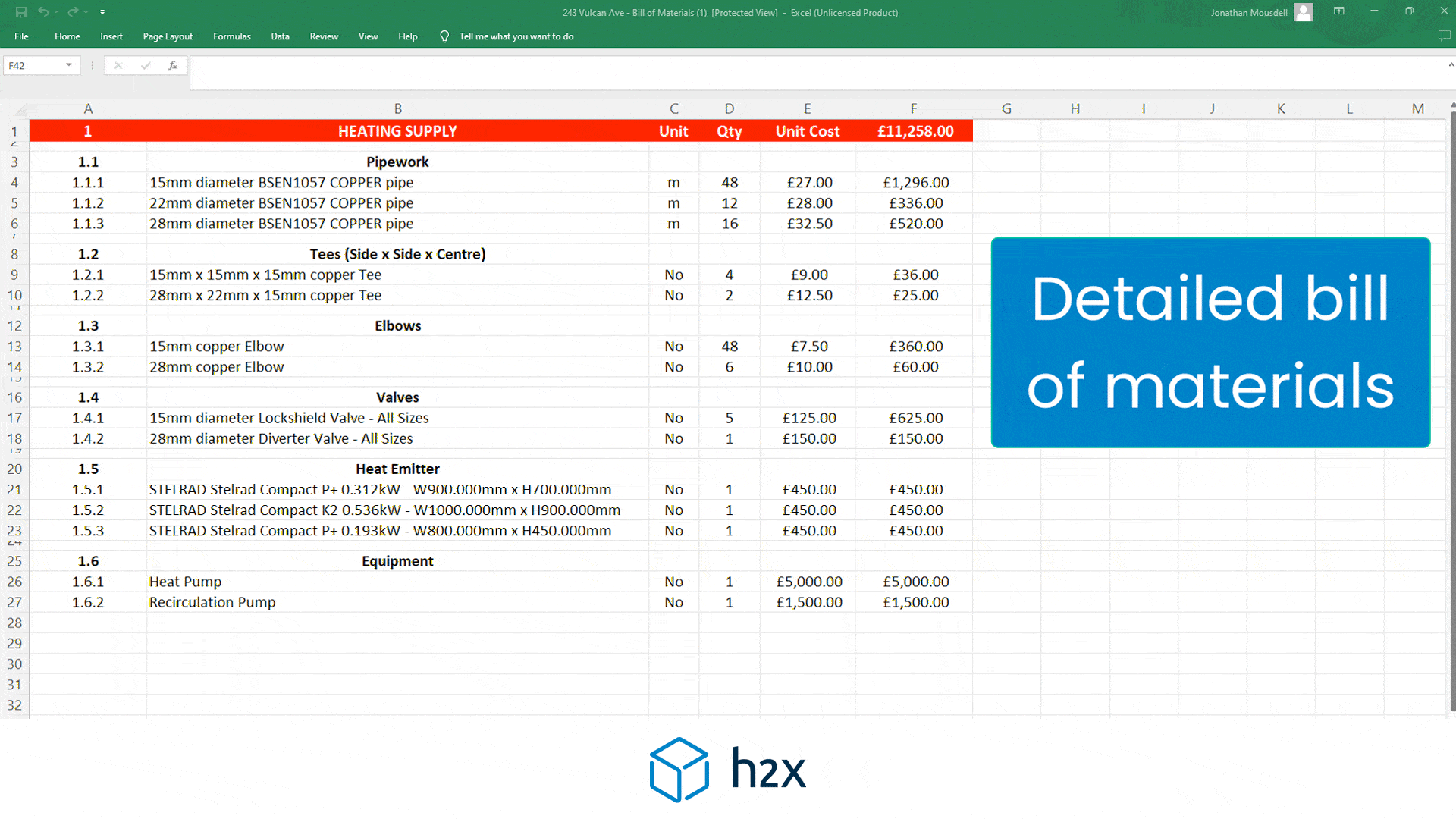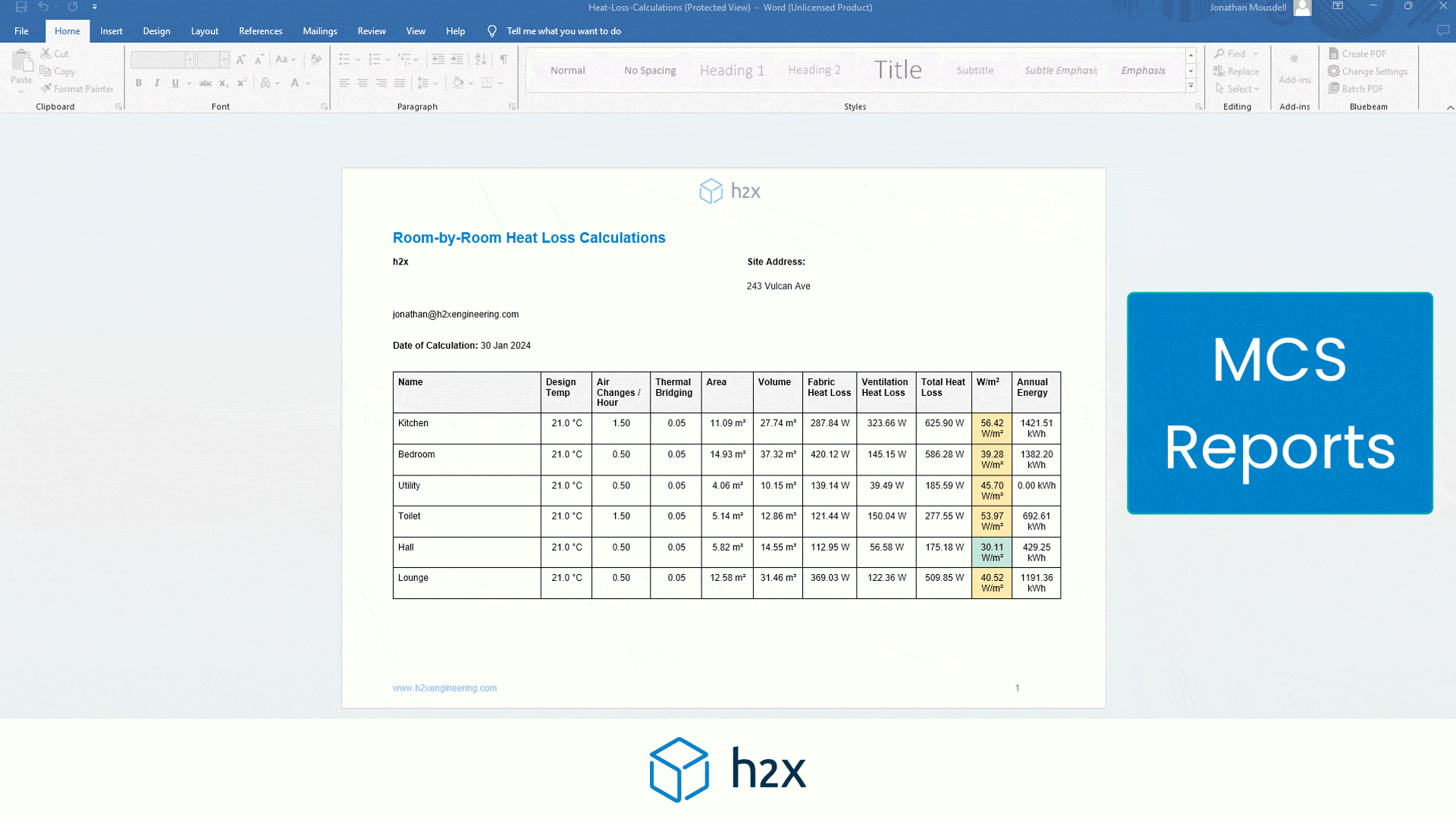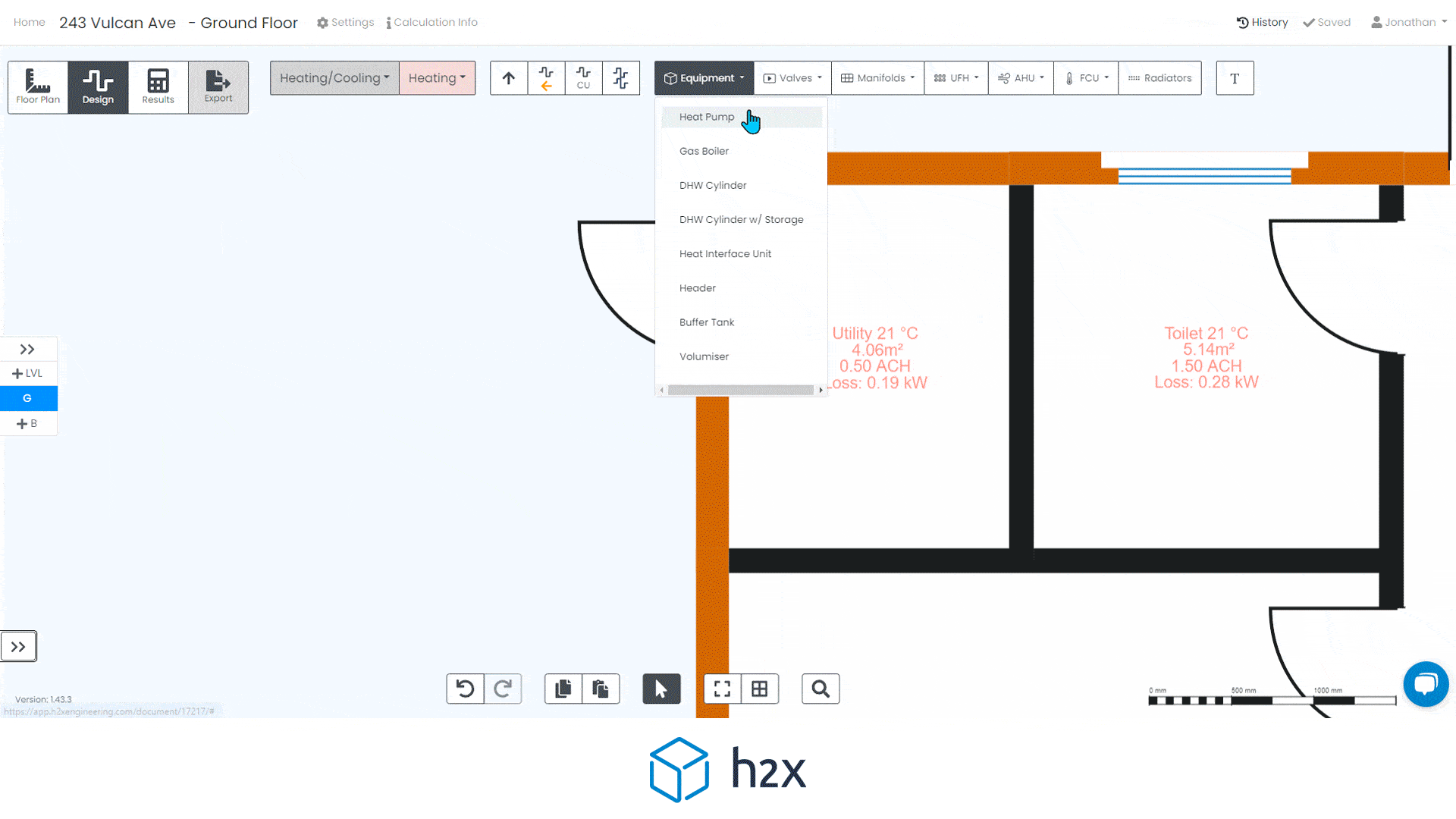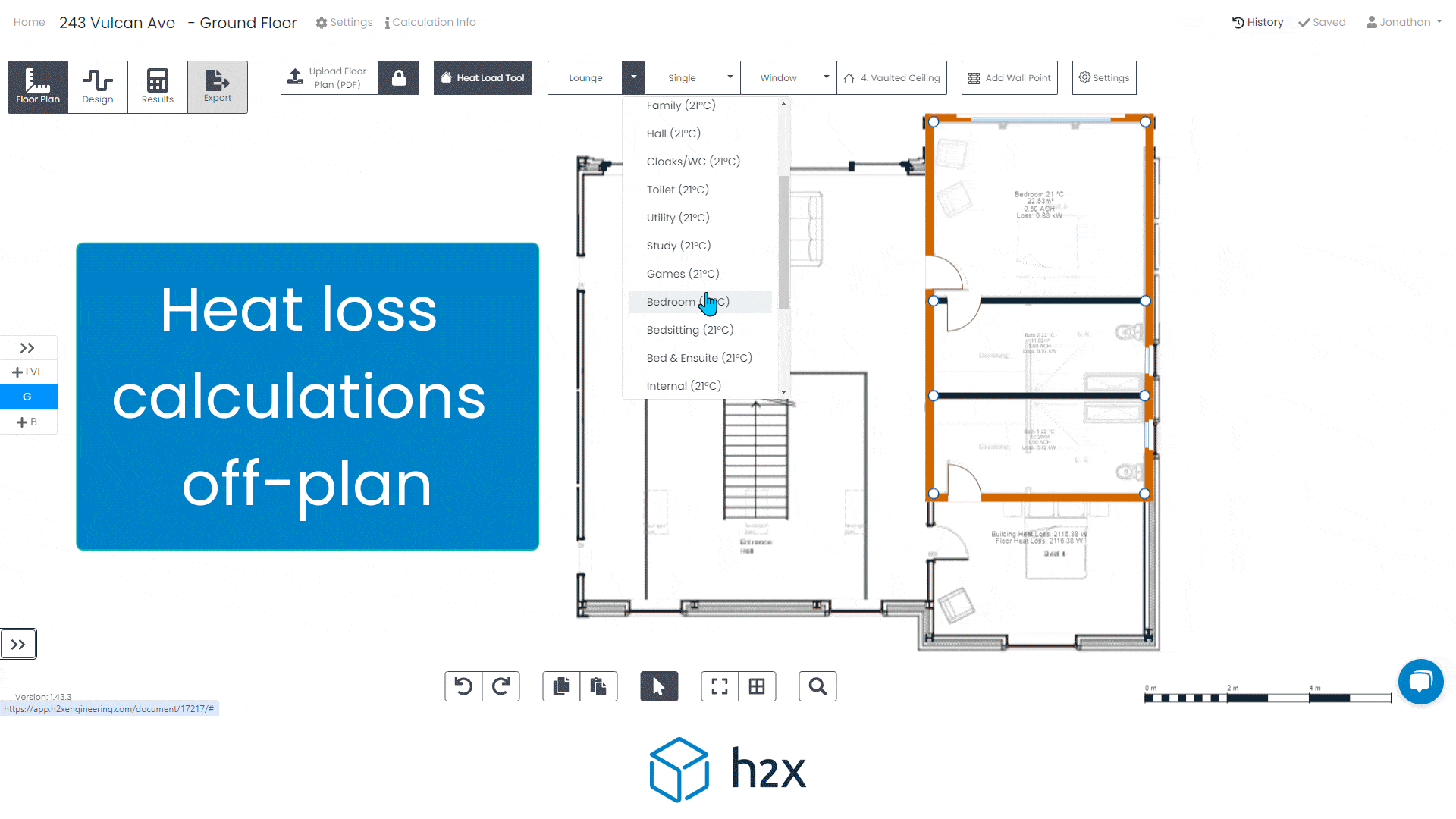h2x Tools
Water Flow Rate Calculator
Flow rate plays a significant role in determining a water system’s longevity and its day-to-day energy consumption.
Get accurate results with this simple, yet powerful flow rate calculator.
Enter fields below to get your results
Other Users Found These Calculators Useful
Calculate friction losses through a pipe quickly and easily, eliminating the need to perform a complex mathematical equation manually.
Calculate velocity through a pipe quickly and easily, eliminating the need to perform complex mathematical formulas manually.
Find out how much water volume is in your pipe by simply inputting the pipe diameter and length.
Flow Rate Variables:
Type Of Fixtures &
No. Of Fixtures
Type Of Fixtures
Different fixtures have different water requirements. For example, baths usually require higher flow rates than sinks or showers.
No. Of Fixtures
Diversity is applied based on the no. of fixtures. The more fixtures there are, the higher the flow rate. However, the likelihood they run simultaneously decreases.
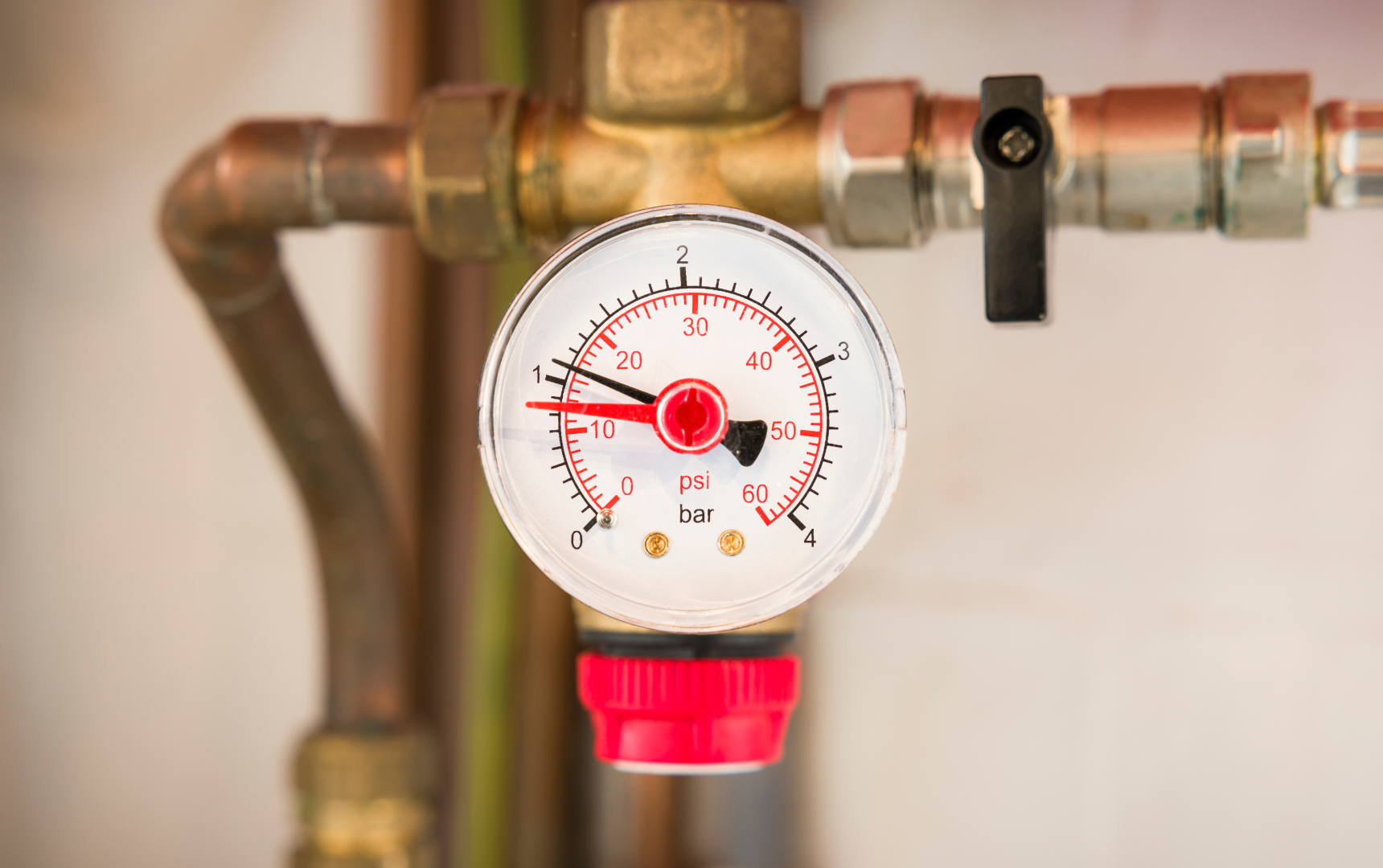
Water Flow Rate Formula
There is no global mass flow rate formula, because every country is different. Here are two examples of different calculation methods to establish water flow rate:
Graph
You look up the number of loading units and where it intersects with the line on the graph below, is correlates to the flow rate:
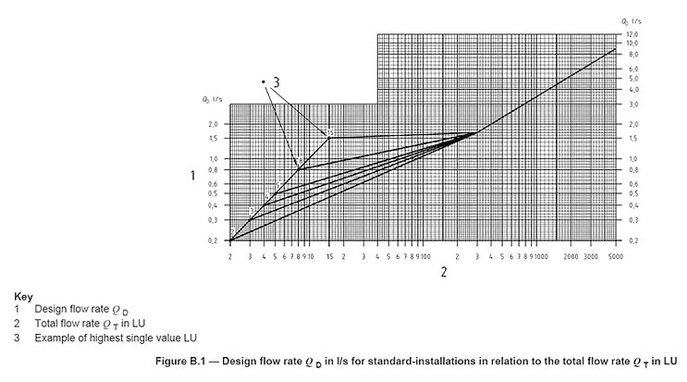
Formula
Here is an example of the German DIN 1998-300 (2012-05) formula:
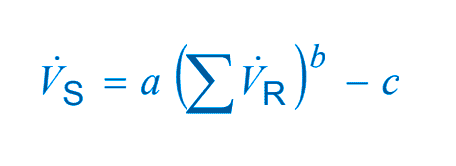
Components of the Equation
- = is the peak flow rate (l/second)
- = is the design flow rate (l/second)
- = are constants as in the table below:
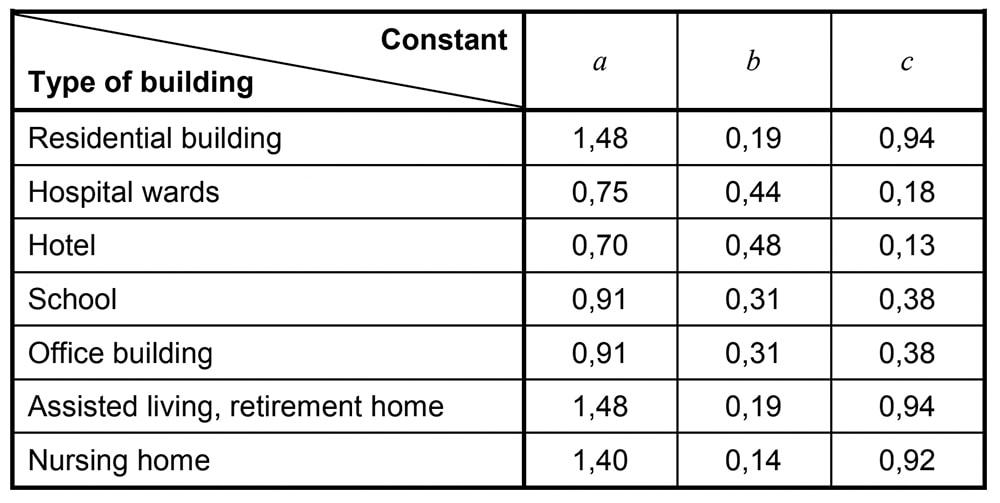
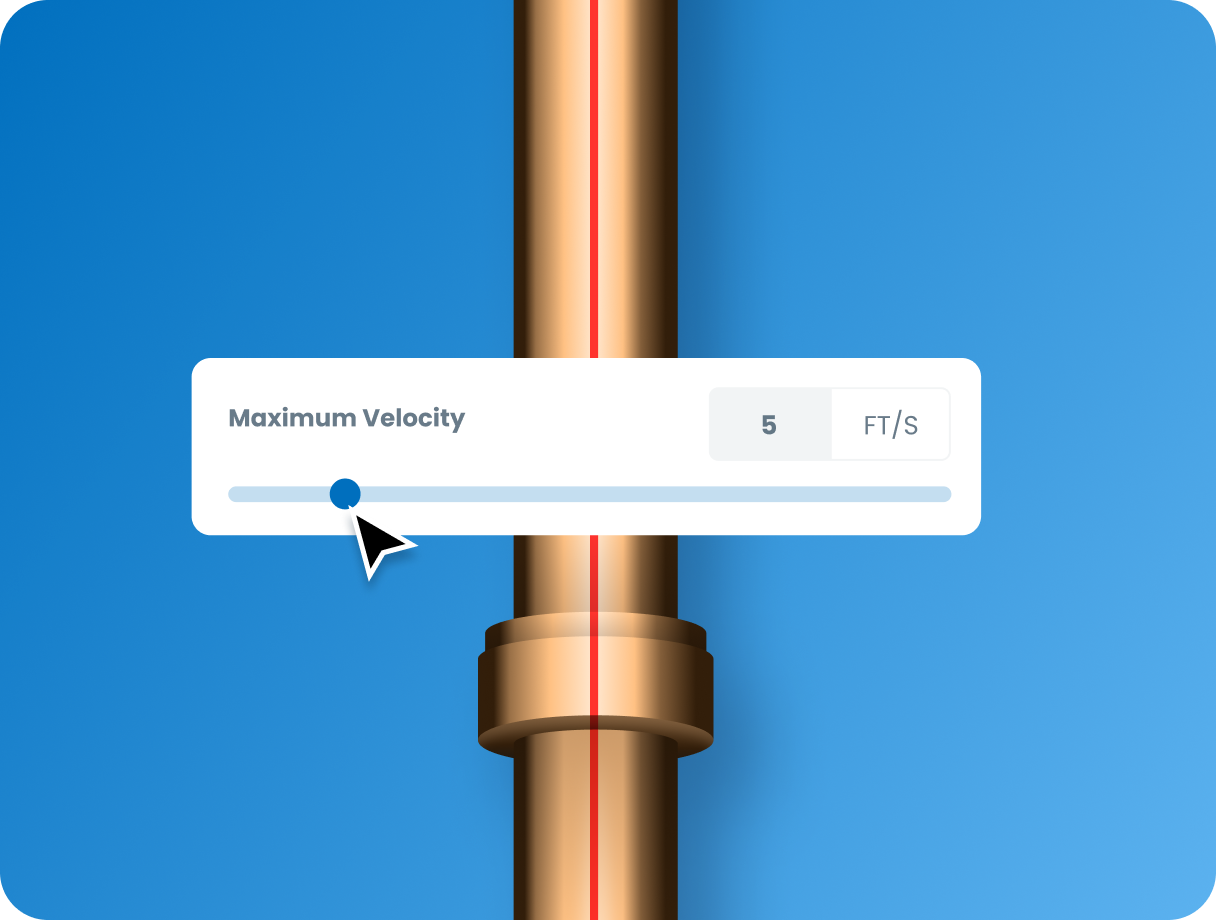
What is the Water Flow Rate Calculation Used For and Why is it Important in Plumbing Systems?
Water flow rate refers to the volume of water that passes through a pipe or system in a given amount of time, typically measured in liters per second (L/s), cubic meters per hour (m³/h), or gallons per minute (GPM).
Calculating the water flow rate is an integral part of designing and managing plumbing systems, whether in residential, commercial, or industrial settings.
Here's why it is crucial:
- Designing Plumbing Systems: Accurate flow rate is necessary to determine the correct pipe size for a plumbing system. If the pipe is too small, they may not be able to have water transferred to service the building adequately, resulting in insufficient water supply to faucets and fixtures. On the other hand, an overly large pipe can lead to unnecessary costs and may affect the water pressure negatively.
- Preventing Water Hammer: Correctly sized pipes based on the flow rate can prevent water hammer, a common plumbing issue. Water hammer occurs when a pipe is incorrectly sized and the flow velocity is too high.
- Ensuring Adequate Water Pressure: To calculate flow rate is integral to maintaining appropriate water pressure. If the flow rate is too high, it could lead to increased water pressure, which can damage fixtures and appliances. Conversely, a low flow rate can result in inadequate water pressure, impacting the functionality of showers, faucets, and appliances like dishwashers and washing machines.
Depending on the specific shape and dimensions, solving flow rate equations can change. Our calculator eases this process, directly addressing factors like diameter, cross-sectional area, and shape.
If it's simple cases of entering wanted numbers for bath flow or addressing complex industrial fan application, to understand how these variables multiply to form a precise flow rate becomes easier.
So, whether you're dealing with a circular pipe or more general shapes, our calculator has you covered, ensuring accurate flow rate solutions for your particular application.
h2x for Water Flow Rate Calculations
- Calculates the flow rate through every pipe (CIBSE-verified)
- Design to different velocities for various water systems (CIBSE-verified)
- Automates all of the formulas based on your design layout
h2x is CIBSE-verified design software built to improve the efficiency and quality of your design process. Read more.
Why Use a Water Flow Rate Calculator?
There are several benefits of using a online calculator to calculate Water Flow Rate, including:
Increased Accuracy:
Determine accurate values by eliminating the possibility of human error when calculating fluid pressure drop by hand.
Time-Saving:
Saves time by providing quick and easy equations, eliminating the case to carry out complex mathematical calcs manually.
Easy to Use:
User-friendly and requires no special training or technical knowledge. Just provide the input and read the detailed results.
Cost-Effective:
Can save money by reducing the no. of hours spent on a manual and long formula, and avoiding costly mistakes.
FAQs
Flow Rate Calculators Resources
Want to Learn More About This Topic?
Learn the fundamentals of flow rate equations and work through real-life scenarios
UK Mains Water Pipe Size Calculator
Get information regarding everything to do with the mains water pipe size calculator for the UK.
The flow rate calculation is the basis for all of your water system formulas; including...
See what h2x can do
There's a reason we are rated 4.9/5 for customer support on Capterra. Our integrated help button
means that a real engineer will assist with any design query, no matter how big or small.


